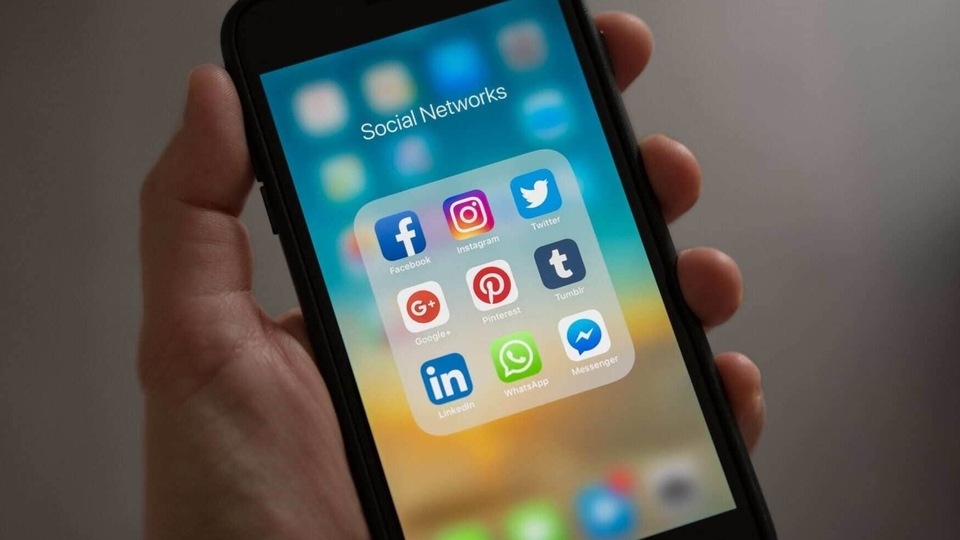Even If Social Media Is Hurting Kids, Regulating It Won’t Be Easy
The Constitution distinguishes between harmful speech and harmful products like cigarettes and alcohol.


Warning: The surgeon general has determined that social media is harmful to your mental health, at least if you're a teen.
Ordinarily, a sentence like that, which isn't an unfair summary of US Surgeon General Vivek Murthy's recent report on social media and youth mental health, would strike terror in the heart of the industry targeted by the advisory. Society typically outlaws minors from using products deemed unhealthy, such as cigarettes and alcohol.
When it comes to social media, however, the regulatory response to the surgeon general's report will have to be tempered in an entirely different way. That's because of a little thing called the First Amendment. The use of social media falls almost entirely into the category of expressive speech — which makes bans (like Montana's prohibition on TikTok) and age limits (like the one proposed by a bipartisan group of senators) much tougher to pass.
Before I analyze the legal difficulties associated with regulating teen use of social media, let me make my regular disclosure that I advise social media companies like TikTok and Meta on issues related to free speech. I'm also a constitutional law professor. And under existing constitutional doctrine, the government can't outlaw speech acts, even for teens, without going through a rigorous process of justification.
The courts apply what is called strict scrutiny to any direct regulation of expressive speech. In practice, that means the government must show that it has a compelling interest — a valid reason — to restrict speech and also that the regulation adopted is narrowly tailored to achieve that goal. Put another way, the government must adopt the least restrictive means of achieving its compelling interest.
That means that if Congress or a regulatory agency or a state wanted to limit teens' access to social media, the first step would be to assert the existence of a compelling interest. And sure enough, protecting the mental health of young people is a compelling interest. As the parent of teens, I can hardly think of a more important one.
But the simple assertion of the interest is only the beginning of applying strict scrutiny. Under the First Amendment, it's not enough for the government to claim that regulating social media would help teens' mental well-being. The government would have to convince the Supreme Court that there is a narrow fit between the objective, namely protecting mental health, and the means adopted, namely a regulation of social media use.
The surgeon general's report highlights the difficulty of proving a close fit. As the report makes clear, the evidence collected so far points to a correlation between some kinds of online experiences, such as being harassed and bullied, and bad outcomes like depression and anxiety. A review of several studies also suggests a correlation relationship between social media use and body image-related disorders.
Correlation, however, is not necessarily causation. And the report, in a section labeled “known evidence gaps,” says that “the relationship between social media and youth mental health is complex and potentially bidirectional,” meaning that the direction of causation can be difficult to ascertain. In plain language, depressed or anxious teens, or teens struggling with body image, might be more likely to spend time on social media.
To be clear, nowhere in the Supreme Court's case law is it written that convincing scientific proof of causation is required to satisfy strict scrutiny. The constitutional standard and the scientific standard are far from identical.
But the two different standards do overlap, conceptually speaking. When a court thinks that the government is regulating speech over inclusively or under inclusively, it strikes down the regulation. That conclusion maps, more or less, onto the court's understanding that the means adopted don't fit the objective — because the means aren't targeting the cause of the problem with enough specificity.
The upshot is not that teens' access to social media can't be regulated but that the constitutional burden for doing so is much higher than it is for cigarettes or alcohol. The First Amendment protects speech; there is no fundamental constitutional right to smoke or drink.
The more evidence that public health experts can gather to ascertain the causal relationship between social media use and mental health, the stronger the case for regulation will become. But that will be an uphill battle without clear and convincing evidence that social media is what's behind the rise in kids' mental health problems.
Right now, the surgeon general's argument that social media is behind teen anxiety and depression feels powerfully intuitive. Yet it is important to remember, too, that in the past, broad swaths of the public found it intuitively convincing that sexually suggestive films or comic books or rock music caused negative outcomes for kids. No doubt social media, with its ubiquity, plays a meaningful role in shaping teens' experiences. At the same time, it is also worth contemplating the still-darker, hard-to-accept possibility that other ills in our society contribute significantly to the current mental health epidemic. Fixing those will take more than restricting teens' access to social media.
Noah Feldman is a Bloomberg Opinion columnist. A professor of law at Harvard University, he is author, most recently, of “The Broken Constitution: Lincoln, Slavery and the Refounding of America.”
Catch all the Latest Tech News, Mobile News, Laptop News, Gaming news, Wearables News , How To News, also keep up with us on Whatsapp channel,Twitter, Facebook, Google News, and Instagram. For our latest videos, subscribe to our YouTube channel.


























